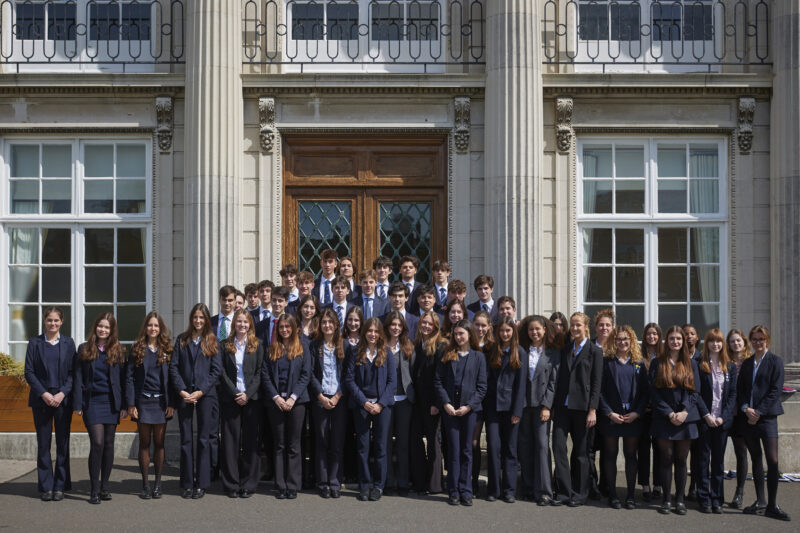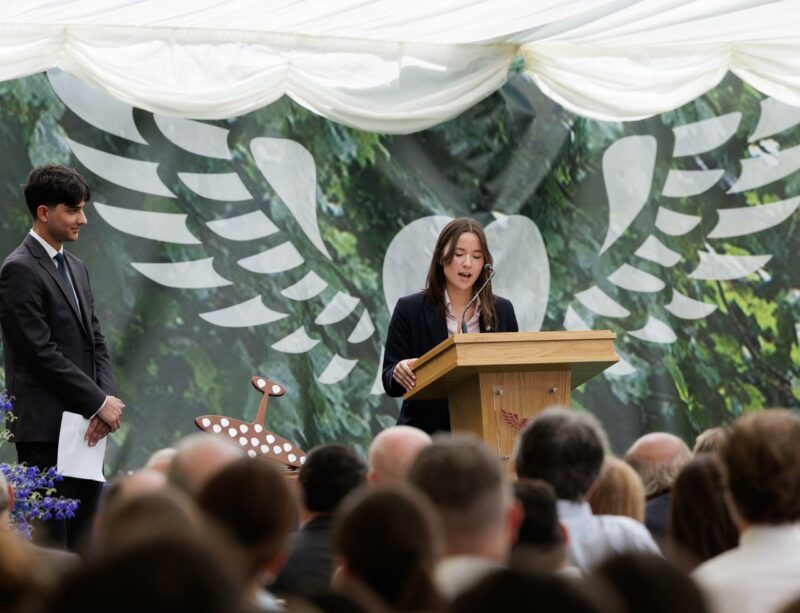This website uses cookies so that we can provide you with the best user experience possible. Cookie information is stored in your browser and performs functions such as recognising you when you return to our website and helping our team to understand which sections of the website you find most interesting and useful.
Maths turns to IGCSE
The Mathematics Department has taken the initiative, in a move to better provide for our pupils in the middle school, to enter all of our pupils currently in the Removes, Middles and Fifths for the London Examinations IGCSE in Mathematics (4400) – International GCSE – instead of the nationally taken GCSE.
There are three main differences between the two examinations, according to the Head of Mathematics, Dr Duncan Harvey. No coursework is formally assessed in IGCSE and all pupils will write the Highest Tier papers, which offer A* to D, thus avoiding having to take the step which determines whether a pupil should have access to an A grade or not. "On the current Intermediate Tier GCSE, the highest grade available is a B," explains Dr Harvey.
"Also, IGCSE is not QCA accredited, so the results cannot be included in the performance tables published on a regional basis by the Department for Education and Skills each November.
"We have no problem with this; it is the pupils’ education we have at heart."
In terms of further education, universities give IGCSE grades the same point count credit as GCSE grades.
The major advantage of IGCSE is the exclusion of assessed coursework which is questionable in its quantification of a pupil’s ability. Investigations will be used as appropriate to develop some concepts, but the outcome is intended to be beneficial to the overall grasp of the subject rather than assessed in isolation.
The extra time generated – about two months of teaching time in the Removes and Middles, and one month in the Fifths – will allow better coverage of the course as well as inclusion of additional topics in IGCSE to make the transition to A Level or IB far smoother. Pupils will experience no deadline stresses with the coursework component removed.
Another significant difference which many pupils will find reassuring is that calculators are permitted on both papers. Certain problems will still be set requiring basic non-calculator skills but the results can be checked on a calculator by the pupil.
"The superseded GCSE course is a suitable foundation for IGCSE, so no work has been wasted and the few extra topics will be covered in the time saved," says Dr Harvey.
Following current practice, accelerated sets will write their IGCSE mathematics examination in their Middles year and then follow an additional mathematics course in the Fifths in preparation for Sixth Form mathematics courses. The majority of pupils will write the IGCSE examination in the summer of their Fifths year.
Responses to the decision, from parents and pupils, have been altogether positive and supportive. Dr Harvey is happy to discuss the benefits/implications of this move with any current or future pupils and/or their parents.




